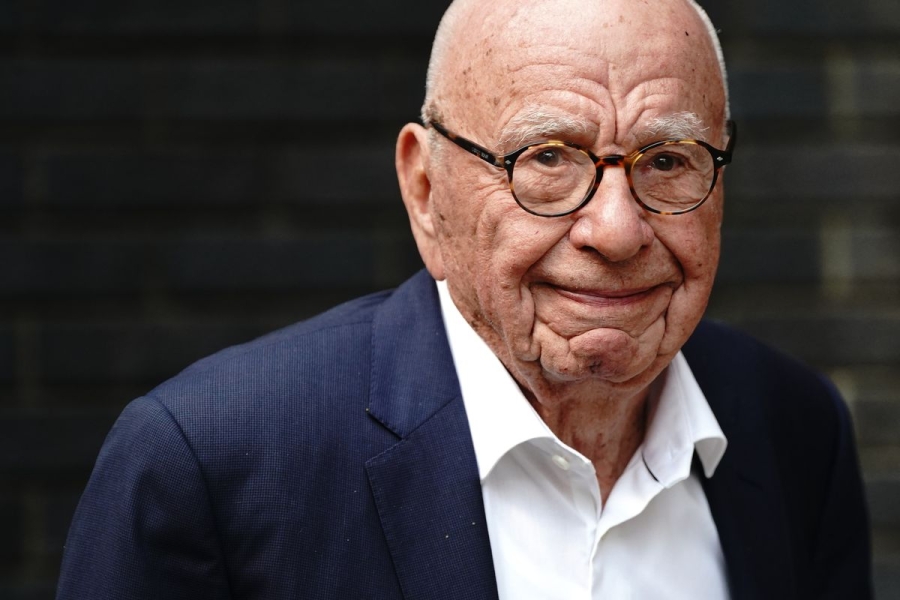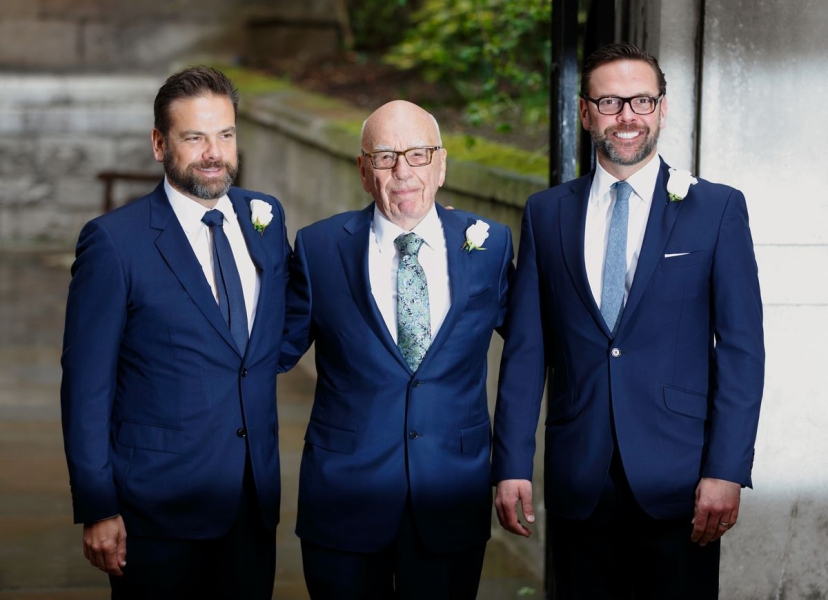Lachlan Murdoch will be formally in charge of Fox News, the Wall Street Journal, and everything else his father built and bought. For now.

Peter Kafka covers media and technology, and their intersection, at Vox. Many of his stories can be found in his Kafka on Media newsletter, and he also hosts the Recode Media podcast.
Rupert Murdoch spent a lifetime building one of the world’s most important media empires. Now, at age 92, he says he’s no longer going to run it day to day.
In November, Murdoch will step down as chair for Fox Corporation, the company that owns Fox News and the Fox broadcast channel, as well as News Corp, the company that owns publishers including the Wall Street Journal and the New York Post.
Murdoch has been the last remaining media megamogul running the business he created. And that business has been extremely influential in both entertainment and politics — particularly in the US, where Fox News has enormous sway with Republican politicians and voters. His formal departure from the boardroom isn’t shocking — again, he’s 92 — but it is still momentous. And yes, there’s a lot in here that reminds people of HBO’s Succession because that show was deeply inspired by Murdoch and his family.
Here’s what we know, and don’t know, about the move:
Who’s going to run the Murdoch media empire now?
Rupert Murdoch’s announcement cements the notion that Lachlan Murdoch, one of his six children, will be steering the family business from now on. Lachlan was already CEO of Fox Corporation, and he’ll become the sole chair of News Corp. (Longtime Murdoch lieutenant Robert Thomson remains CEO of News Corp.)
Okay, but who’s really going to run the Murdoch media empire now?
That’s a good question. Fox and News Corp are public companies, but the Murdoch family controls them via ownership of a special class of shares, and Rupert Murdoch still controls the trust that controls those shares. So at the moment, nothing structural is going to happen at either company without his assent. It’s also worth noting there’s a scenario that gets floated periodically in which Lachlan’s brother James, who used to help manage the family business but split from it a few years ago, wrests control of it following his father’s death.

Why is Murdoch stepping down now?
We can’t stress this enough: He’s 92. He was going to have to leave the company sooner or later. But in a memo to his employees, Murdoch says he’s in “robust” health despite repeated incidents over the past few years. In 2018, for instance, he severely injured himself after falling on Lachlan’s yacht, the New York Times reported.
The clearest indicator that Murdoch has been thinking of moving on was a plan, floated last fall, to combine his two companies, which many observers thought was a step to give Lachlan increased control. That deal was scuttled in January after investors — and James Murdoch — complained. In 2019, Murdoch took many of his chips off the table by selling his Hollywood film studio and other assets to Disney for $71 billion.
Murdoch’s future and the future of his empire once he leaves have been the object of media speculation for years, and not just on prestige TV. This week, for example, author Michael Wolff published The Fall: The End of Fox News and the Murdoch Dynasty, which covers infighting within the Murdoch empire and begins with a mock obituary for Murdoch.
How will things change at Murdoch’s companies if he’s not on their boards?
We’re going to find out. Murdoch came up through the news business — his father owned newspapers in Australia — and, for years, Murdoch was famously hands-on with many of his news properties. Fox News was a slightly different case. For a long time, it was run as a fiefdom by executive Roger Ailes, though Murdoch certainly had views about the channel’s coverage and enjoyed the power it gave him in Republican politics. And in 2016, Rupert and Lachlan forced Ailes out following sexual harassment claims.
So it’s unclear whether Rupert is willing or able to stop steering any of those properties now. In a company memo announcing his move, he made a point of saying he’s not walking away from his companies at all: “I will be watching our broadcasts with a critical eye, reading our newspapers and websites and books with much interest, and reaching out to you with thoughts, ideas and advice,” he wrote. (He also took time to complain about “elites” who have “open contempt” for the rest of the world, as well as “most of the media [that] is in cahoots with those elites”).
There is also an alternate view of Murdoch’s recent involvement at this company — which is that he hasn’t been that involved.
“There’s a leadership void,” says professional Murdoch-watcher Brian Stelter, most recently of CNN. Stelter notes that during the discovery for the Fox Dominion defamation case, emails and depositions paint Murdoch as more of a bystander to the goings-on at Fox News. That’s a real change from the Murdoch of old.
On the other hand, Murdoch has historically been quite good at buck-passing when his company has been accused of misdeeds (see: his testimony in the News of the World phone-hacking case more than a decade ago. Is it possible that Murdoch wasn’t really checked out in 2012, but has been for the last few years? We’ll find out.
This is a developing story that we’ll be updating as new information is available.
Source: vox.com






